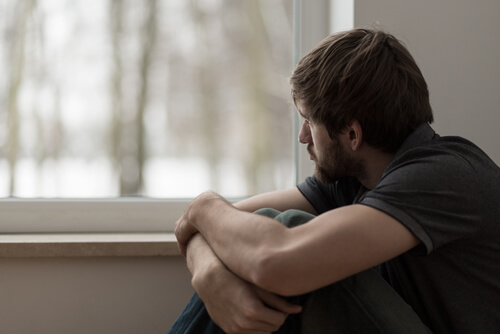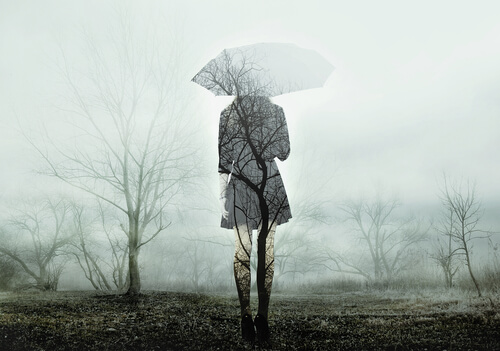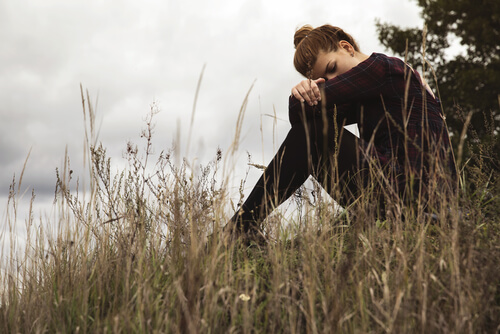Autumn is the Year's Sunday


Written and verified by psychologist and journalist Sara Clemente

Along with that, autumn has some other characteristics that bring your state of mind way down. The most significant of all of them is definitely your attitude when it comes to dealing with the transition into winter. So how can you make it to the coldest part of the year at your 100% best?
Autumn’s influence on your well-being
When autumn starts, whether in the Northern hemisphere (October) or the Southern (March), we go through a lot of changes to our mood. We also all might experience them differently and at different levels. But in general the beginning of autumn means apathy, anhedonia, and/or fatigue.

During the summer the days are longer and it seems easier to take advantage of your time. Plus, since you usually have a few weeks of vacation to rest and spend time with your family, you’re calmer and more relaxed. You remember that you have less responsibilities than the rest of the year, don’t have to rush, and don’t have to go through the constant monotony and stress of your work week.
But all this changes completely when autumn comes around. The days get shorter and shorter, the nights get longer, there are less hours of light, and rain and cold replace summer’s good weather.
September, it either wears you out or builds you up
The lower temperatures are like an invitation to stay inside and spend less time outdoors. You might even socially isolate yourself. And this change in weather could make you catch a cold and feel weaker and more vulnerable. Seeing the leaves fall from the trees and build up on the ground will also make you feel nostalgic and sad.
A lot of people turn their closet into a personification of their grimness. So you stop wearing happy-colored, bright clothing and switch to a much darker, gloomier color spectrum.
The hormonal twist
These external factors, especially the changing weather and less and less sunlight will lead to a series of hormonal changes. Those hormonal changes will make your energy much less stable throughout the day. Let’s look at them:
- Increased melatonin production: because there’s more of it in you’re blood you’ll always feel a little tired and feel more like sleeping and laying down.
- Reduced serotonin production: this happens with the increase in melatonin, because it throws your sleep, mood, and state of mind off balance.
- Reduced dopamine production: this causes a lack of attention and general lack of interest.

“Autumn depression”
If the reduction in your mood is intense and long-lasting, you might be experiencing what’s known as “autumn depression” or “winter depression.” But stay calm! It’s just a temporary situation that you can avoid if you take the right steps.
Its symptoms are a huge lack of energy and interest in everything, apathy, irritability and a bad mood, problems getting to sleep, and difficulty concentrating. In some cases people might even experience strong feelings of loneliness, even if it’s not real.
How to fight it
You should see a specialist about these kinds of mood disorders, but there are some ways you can deal with the symptoms. If you make some small changes to your diet and do some daily activities it can be a big help.
On the dietary level, it’s a good idea to make sure you’re getting a lot of vitamins B and C, along with minerals like calcium and magnesium (they’re necessary for neurotransmitter production). You can also use valerian root and purple passionflower to relax and improve the quality of your sleep.
Sometimes you get stuck thinking that when vacations are over so is the time you have to dedicate to yourself. But that’s just not true. You should keep on finding those moments of leisure and entertainment and fill up your life with fun activities. For example, doing sport. And if you don’t have time to do it outdoors, indoor sport is still a great way to get your positive attitude back and hold onto it.
Besides your body, you can also help your mind out by reading, going to the theater, the movies, or museums. You can listen to music, have a nice conversation with friends, or share a special moment with your partner or children.
Not doing all those small activities that make you happy all of a sudden means you’ll lose energy and start to feel more apathetic. In the end that will bring your mood down and give you higher stress levels too.

Autumn depression isn’t always post-vacation syndrome
Post-vacation depression is the state a working person finds themself in when they don’t properly adapt from their vacation time back into their work life.
The symptoms are very similar to autumn depression. But there are also some other significant physical issues like muscle pain that will lead to reduced job performance.
This syndrome can also show up at any moment in the year, whenever you get back from your vacation. So if for whatever reason you postpone your vacations until November, post-vacation syndrome will show up after.
Autumn depression always goes along with a specific part of the year: the end of the summer and the beginning of the season after. Post-vacation syndrome also mostly affects young people, especially people under 45. Meanwhile the people most vulnerable to autumn depression are adults above that age.
As you’ve seen, there are a lot of factors during autumn that might put your physical and psychological well-being at risk. But that doesn’t have to stop it from being the best season of the year. You just have to learn to get the most out of it!
This text is provided for informational purposes only and does not replace consultation with a professional. If in doubt, consult your specialist.








